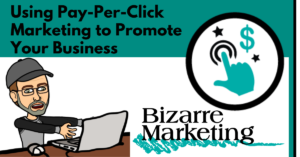
Pay-Per-Click Marketing encompasses the use of search engine advertising to create clicks on a website rather than earning the clicks; it includes ads that are often seen at the top of Google’s search results page having a yellow label. It works uniquely: once the ad is clicked, it sends a visitor to your website, and you are expected to pay Google some money.
Significance of Pay-Per-Click Marketing
Essential for Search Engines
PPC allows various search engines to cater to advertisers and searchers. Searchers consist of their user-base as advertisers offer them with their revenue stream. The search engines aim at providing the most relevant results while delivering a revenue-generating advertising channel.
Important for Advertisers
PPC provides advertisers with unique ways of putting their messages to the target audience who are seeking their product. Advertisers can measure the quality of traffic following the fact that searchers reveal their intent through their search query. This implies that advertisers can easily measure traffic using the data obtained from the search engine clicks.
Significant for Searchers
Research has it that most searchers primarily click on paid ads as compared to the free ones; hence paid ads are more useful for digital advertising. The search engines provide searchers with results like ads that are relevant to what they are seeking. PPC can also be used by searchers to ensure that Google meets their needs.
Google Ads for PPC Marketing
The users of this digital marketing platform bid on the keywords and pay every click on their advertisements. Once a search is initiated, Google makes a selection from pool bidding advertisers and picks a set of winners who appear on the search result page. Winners are selected based on some criteria like the relevance of keywords, relevance, and quality of the ads and ad text. Winning advertisers are then allowed to reach out to their potential clients at a cost suitable for their budget.
Why PPC Marketing?
PPC marketing allows you to increase your customer growth. The platform will enable you to connect with numerous searchers who are actively looking for specific products and services like the ones you provide. Through the platform, you can respond to customer questions and provide them with the most relevant offer regarding their search query.
Additionally, PPC allows you to create leads at affordable costs. The platform will enable you to reach prospects and leads when they are seeking to purchase. PPC allows you to bring interested customers to your site. Moreover, it does not matter the type of business you operate, PPC works for all kinds of businesses whether you are seeking for an e-commerce website or building brand awareness.
How to Use Keywords in PPC Marketing
Generally, the PPC campaign is built around the use of keywords. As an entrepreneur, you have to grow and refine your PPC keyword list. A valid keyword should be relevant to your business. You cannot pay for web traffic that does not support the growth of your business. Ensure that you use the most pertinent keyword relating to your business.
PPC keywords should also be expansive, following the fact that PPC is iterative. You will need to continuously expand and refine your campaigns and strive to develop an environment that your keyword constantly grows and becomes adaptable to customers.
Furthermore, the keyword should be exhaustive, implying that it should include the frequently searched words, the most popular terms, and it should also extend to the long tail of search. You should note that long-tail keywords tend to be less common and more specific, and they easily contribute to the primary search-driven traffic. Always ensure that you use the strategy of negative keyword discovery.
Effective Management of PPC Campaigns
For effective digital marketing, you should continuously analyze the performance of your Google ads. You should also practice the following to optimize your advertising campaigns: add your PPC keywords, split ad groups, refine landing pages, review costly PPC keywords.
Guest Blog by: Tim Somers – Bizarre Marketing



